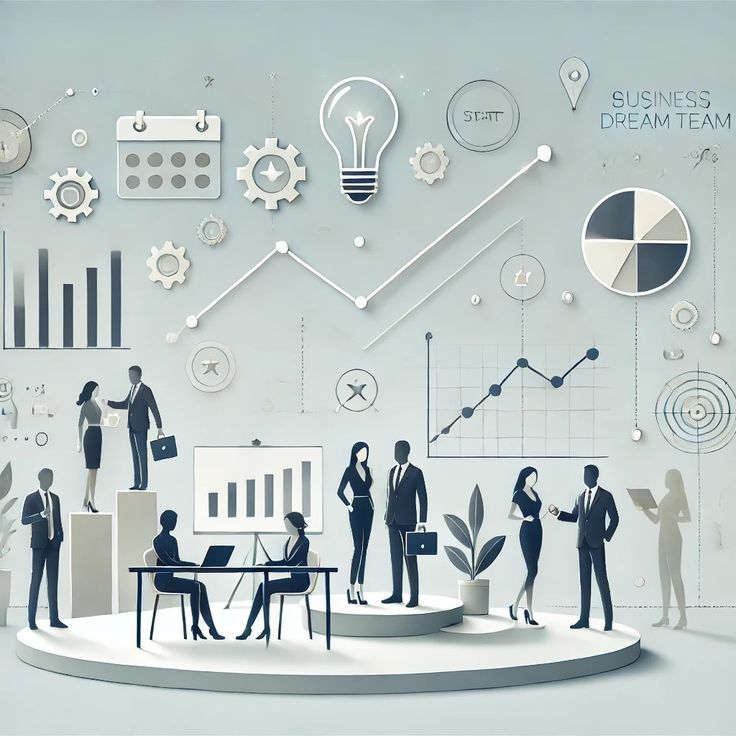Personalized Training Programs: Customized learning paths for employee development

Project Overview
Industry: Corporate Training & Workforce Development
Application: Employee Learning & Development (L&D)
Project Duration: 6 months
Team Size: 2 AI engineers, 1 HR specialist, 1 learning experience designer
Business Challenge
Organizations struggle to provide effective training that matches both business goals and individual employee needs. Key challenges included:
- One-size-fits-all training reducing effectiveness and engagement
- Difficulty mapping training content to specific career paths
- Limited visibility into employee progress and learning outcomes
- High training costs with low return on investment
- Difficulty retaining top talent due to lack of career-aligned development
These issues hindered workforce performance, slowed career growth, and reduced employee satisfaction.
Our Approach
We developed an AI-powered training personalization system that creates customized learning paths based on employee roles, skills, and career aspirations.
Key considerations:
- Real-time employee skill assessment and profiling
- AI-driven recommendations for role-specific training paths
- Adaptive learning modules tailored to performance and feedback
- Integration with HR and Learning Management Systems (LMS)
AI-Powered Training Personalization System
- Skill gap analysis combined with career path recommendations
- Dynamic learning path generation for each employee
- Adaptive modules adjusting difficulty and focus based on progress
- Continuous feedback integration for personalized improvement
Implementation Process
- Phase 1: Collection of employee skills, roles, and career goals
- Phase 2: Development of AI recommendation and personalization models
- Phase 3: Pilot testing within select departments
- Phase 4: Full rollout with dashboards for employees, HR, and managers
Quality Assurance
- Validation of training recommendations against performance outcomes
- Compliance with HR policies and learning standards
- Employee feedback loops to refine learning paths
- A/B testing of personalized vs. generic training effectiveness
Results
Productivity Improvements
- Reduced HR workload in creating and managing training plans
- Faster upskilling for employees in critical roles
- Improved alignment between training and organizational goals
Workforce Quality
- 35% increase in employee engagement with training programs
- Improved job performance through targeted learning
- Higher retention rates due to career-aligned development
Business Impact
- $250,000 annual savings from reduced redundant training
- Stronger internal talent pipeline reducing external hiring costs
- Increased employee satisfaction and long-term loyalty
Technical Implementation
AI Framework: Recommendation systems and adaptive learning models
Data Sources: Employee skill profiles, HR data, performance metrics
Integration: HR systems and corporate LMS platforms
Dashboards: Personalized employee portals and HR/manager insights
Key Features
- Role-based and career-aligned training paths
- Adaptive learning modules based on employee progress
- Real-time dashboards for employees and HR managers
- Skill development tracking with career growth insights
Client Feedback
The personalized training platform helped us transform our workforce. Employees now see a clear path for growth, and our managers can track development aligned with company goals.
Implementation Timeline
Before AI Implementation
- Generic training programs with limited personalization
- High disengagement and low completion rates
- Manual tracking of employee progress
- Training disconnected from career paths
After AI Implementation
- Customized learning paths for each employee
- Increased engagement and completion rates
- Automated skill and progress tracking
- Training aligned with both career and business goals
Implementation Challenges
- Integrating training personalization with legacy HR platforms
- Ensuring fairness in AI recommendations across diverse roles
- Balancing organizational priorities with employee aspirations
- Driving adoption among employees and managers
Continuous Improvement
- Regular updates with evolving organizational and industry skill needs
- Expansion of training content libraries with microlearning modules
- AI-driven career growth recommendations based on performance data
- Enhanced support for cross-departmental skill development
Future Enhancements
- Integration with performance reviews for continuous growth feedback
- Career mobility analytics to support promotions and transitions
- AI-powered mentors and virtual coaching assistants
- Blockchain-based certification and credentialing for employees
Explore More Case Studies

Skill Gap Analysis: Identification of training needs and skill development areas
